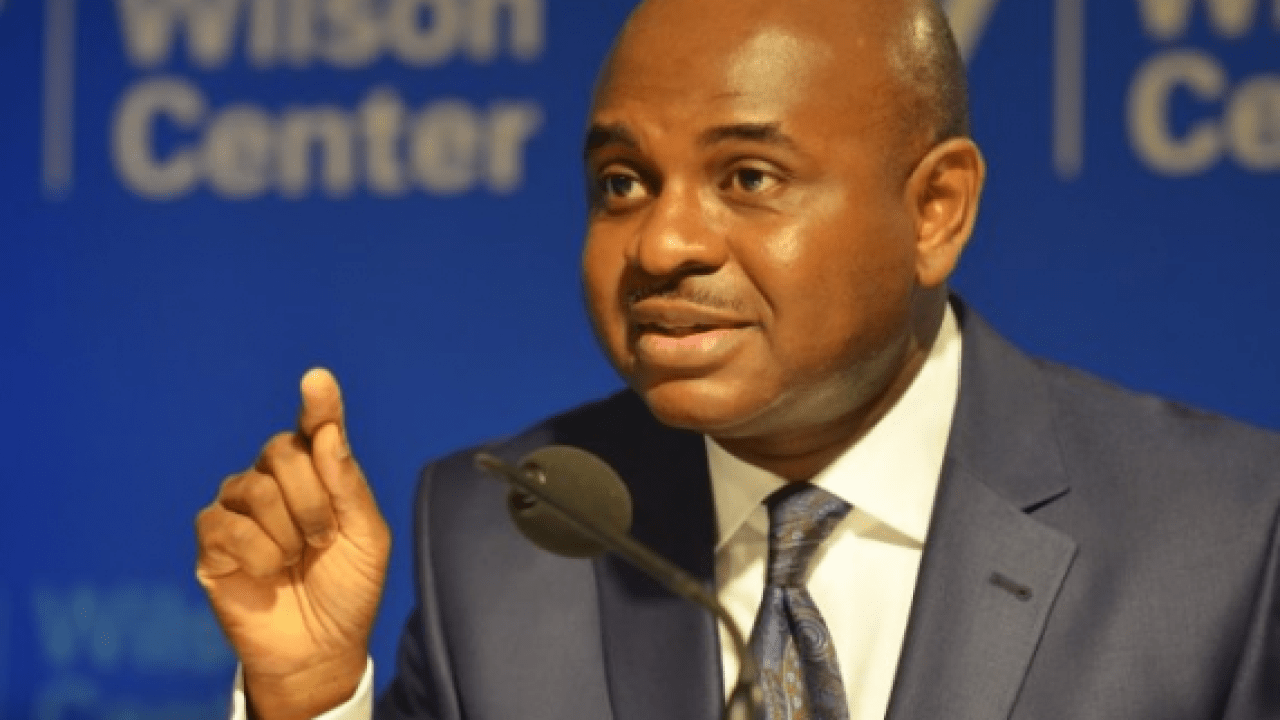A former deputy governor of the Central Bank of Nigeria (CBN), Kingsley Moghalu has accused successive governments in Nigeria of raiding the country’s Excess Crude Account whenever they were strapped for cash, reducing it from N$20bn to a meagre $376,655.
Moghalu, who disclosed this on Wednesday, noted that the success of the stabilization fund inspired Nigeria’s President Olusegun Obasanjo when his government established the Excess Crude Oil Account.
“This was what President Olusegun Obasanjo had in mind when his government established the Excess Crude Oil account in the early 2000s. Unfortunately, the arrangement was not governed by a strong legal or constitutional framework.
He added that Nigeria’s ECA was raided and strapped for cash, citing challenges by Governors to share funds from the ECA and also complete depletion under the President Buhari administration.
“This meant succeeding administrations simply saw the ECA as a fund to be raided by Nigeria’s governing politicians whenever they were strapped for cash. The state governors challenged the ECA in a suit they filed at the Supreme Court in 2008, arguing that the money should be shared between the federal and state governments based on certain provisions of the 1999 Constitution.
READ ALSO: Nigeria’s present economic situation gloomy, says Moghalu
“The case was eventually settled out of court at the urging of President Umaru Yar A’dua. President Obasanjo left an ECA balance of $20 billion when he left office in 2007.
“By the time Goodluck Jonathan came into office in mid- 2010 after the death of Yar’Adua, the ECA balance had dropped to $6.5 billion. In May 2015 when the present Government of President Buhari was sworn in after winning the 2015 elections, there was $2.07 billion in the ECA pot.
“Today, all which is left in the ECA is $376,655 – the average cost of buying a two-bedroom flat in most cities in the United States.
He also noted that Nigeria was late to establish a sovereign wealth fund, as we funded ours in an era of lower crude revenue.
“In 2011, Nigeria established a formal sovereign wealth fund through an Act of the National Assembly. During the planning meetings between CBN and the Finance Ministry in which I was the assigned Deputy Governor of the central bank, I suggested the formal name of the fund to be the Nigeria Sovereign Investment Authority, and this was agreed upon”.
He added NSIA (Sovereign fund) today has $2.5 billion under management. We arrived very late as a country to the sovereign wealth party when oil was already in decline.
Moghalu compared economic policies in Nigeria and Chile, explaining how Chile used its natural resource earnings to grow its economy in areas Nigeria failed.

 Latest4 days ago
Latest4 days ago
 Trends5 days ago
Trends5 days ago
 Business7 days ago
Business7 days ago
 Health6 days ago
Health6 days ago
 Football7 days ago
Football7 days ago
 Featured7 days ago
Featured7 days ago
 Football6 days ago
Football6 days ago
 Business7 days ago
Business7 days ago

